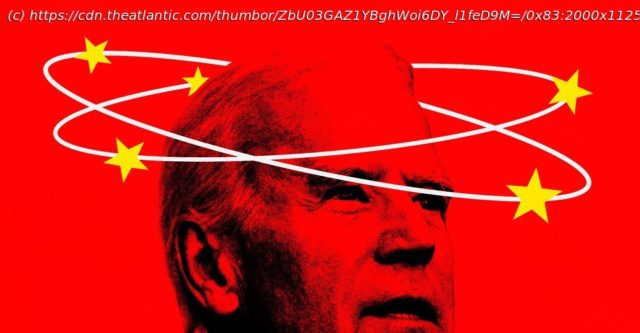Look to Europe for lessons.
In a recent campaign ad, Joe Biden accused the president of being too soft on China over COVID-19. This decision to criticize Donald Trump on China and subsequent signals that Biden will take a tough approach toward Beijing have made some progressives nervous.
Writing in The Atlantic, Peter Beinart called Biden’s ad “a jingoistic fantasy” that may put Asian Americans in the crosshairs of racist attacks, “hastening a geopolitical confrontation that threatens progressive goals.” In The New York Times, the Quincy Institute for Responsible Statecraft scholars Rachel Esplin Odell and Stephen Wertheim warned Biden about following Trump into a new cold war with China and argued that the United States should seek to work with Beijing on shared challenges such as pandemics and climate change.
Critics of Biden’s China policy are proposing far-reaching U. S.-China cooperation that Chinese President Xi Jinping’s recent diplomatic record suggests is chimerical at best. Yes, the United States should have a bilateral relationship with China and the two countries should cooperate on shared interests, including pandemics, but the proposition that a cooperative world lies just beyond the horizon if only the United States were to want it enough is not borne out by the evidence. And any progressive foreign policy needs to be based on a realistic assessment of China’s record.
Just ask the Europeans. Their experience proves that such cooperation has real limits and that China is constantly looking to exploit any perceived weakness or division. The European Union has no meaningful ability to counter Chinese power militarily. It is diplomatically cautious and hardwired to support engagement with Beijing. Its strategic assessments go out of their way to be nuanced and balanced.Last year, a key EU document said:
Although this may sound as if the EU is trying to have it all ways with China, this wording was widely interpreted as a toughening of Europe’s position.
Even as the EU tried to formulate a united approach to protect against pressure from Beijing, it sought to distinguish itself from the United States with an ambitious and pragmatic policy agenda for cooperation with China. This year was supposed to see the first ever summit, in Leipzig, Germany, among the heads of government of all 27 EU member states and President Xi, with negotiations on a comprehensive EU-China investment agreement at its heart. When the coronavirus hit in January, the EU quietly assisted China and refrained from any criticism of its regime, in the hopes that doing so would build goodwill.
In other words, the official EU posture and the bloc’s practical policy toward China, even as it hardened, was far softer and more benign than any imaginable U. S. approach. European governments were going to great lengths to see if engagement would yield new levels of cooperation on shared challenges, but they were continuously and sorely disappointed.
Well before the COVID-19 crisis, EU governments were growing more and more worried about China’s behavior. They realized that while Chinese state-backed companies and funds aggressively increased their presence in Europe, China would not undertake structural economic reform to open up to Europe. Beijing sought to divide the EU, developing ties with Central and Eastern Europe while pressuring recipients of Chinese investment, such as Greece and Hungary, to block or stymie EU actions Beijing disapproved of on human-rights or investment controls. China also began to flex its muscles to mute any criticism of the regime by governments, companies, or individuals.






